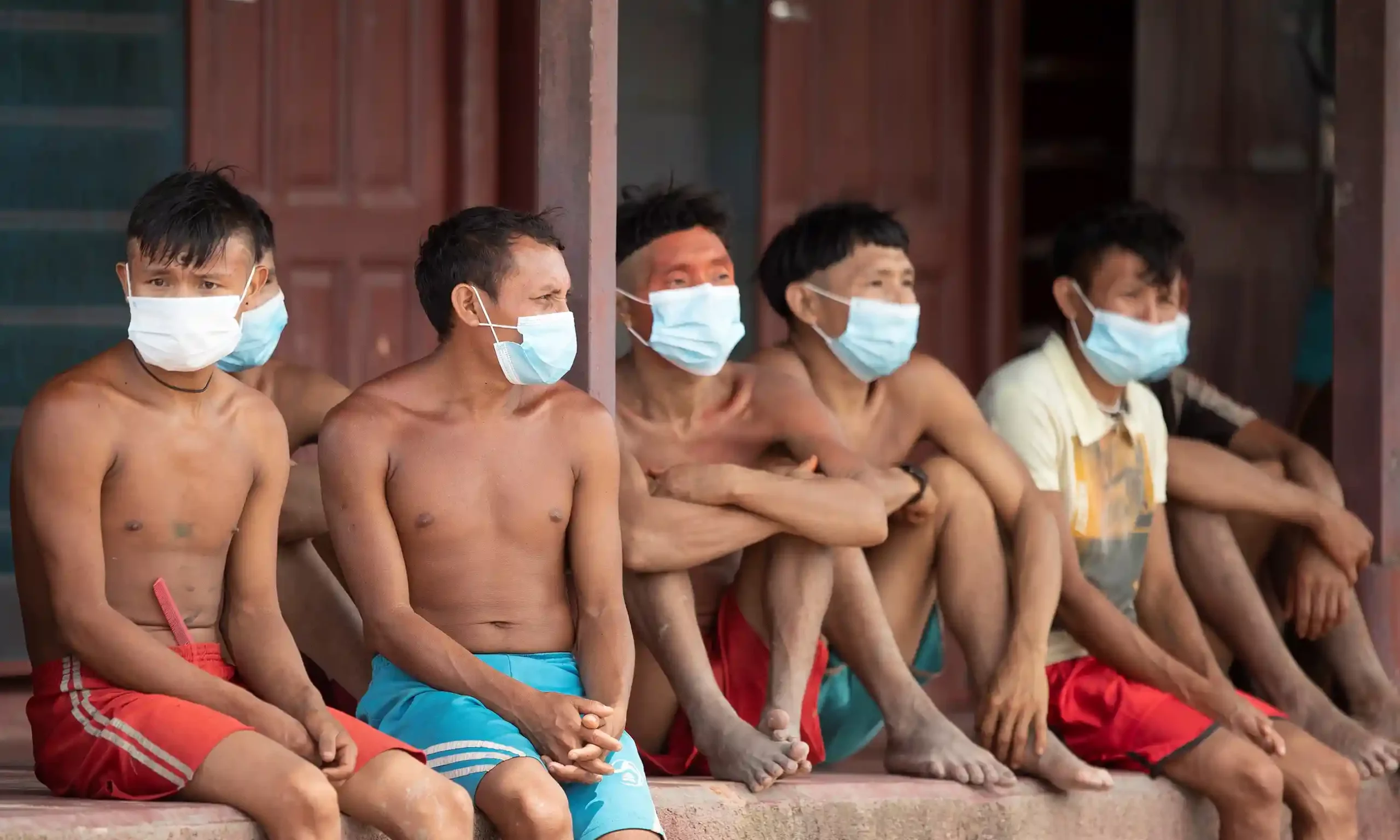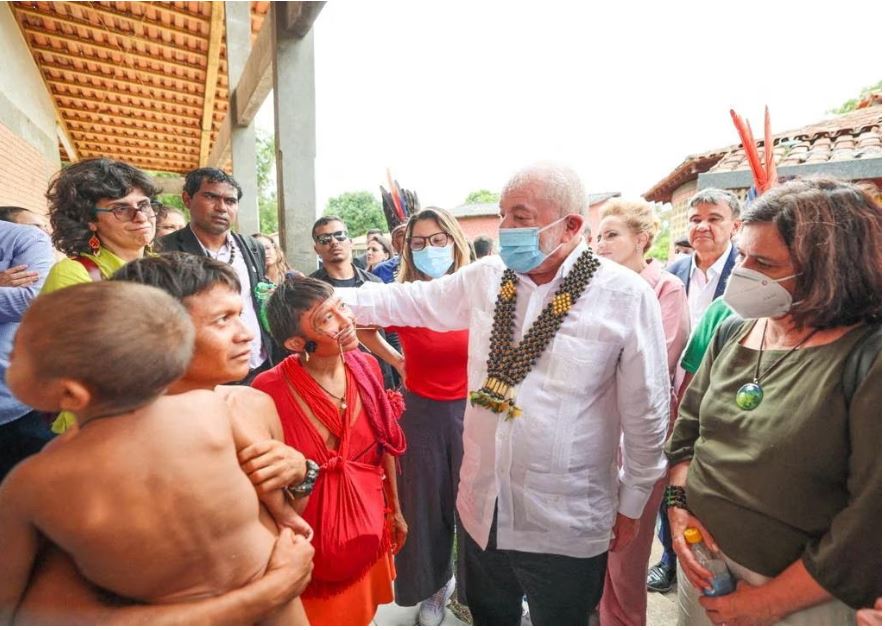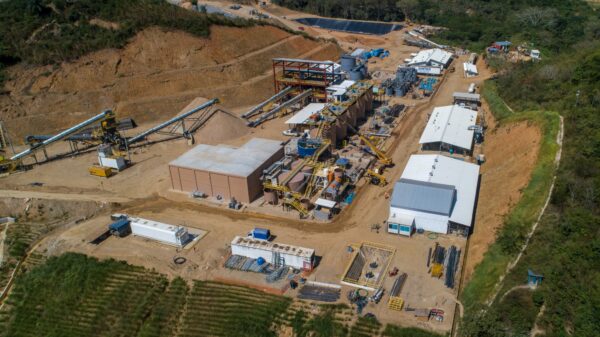Brazil’s new government is deploying its army and police forces to remove illegal mining operations from the Amazon and help the Yanomami Indigenous population.
Justice Minister Flavio Dino said on Monday during a press conference that approximately 500 police officers and soldiers have gone to the area to evict the miners by the end of the week.
Some illegal miners already leaving the area but Dino said all those who committed genocide, environmental crimes and financing illegal gold mining operations will be prosecuted.
Last Friday, Brazil’s Minister of Defense Jose Mucio announced the army is to be deployed to fight against the illegal gold extraction that has affected the Yanomami Indigenous population.
Sergio Leitão, the founder and executive director of Instituto Escolhas, said in an interview with BNamericas that the government has already established an air blockade over Yanomami indigenous land since all supplies for illegal mining in the area are delivered via planes.
Local Boa Vista police, in the Amazonian state of Roraima where Yanomami lands are located, have already seized over 20 airplanes used by the illegal mining operations while other airships have been destroyed during a police operation against the miners.
On Jan. 22, the Brazilian Ministry of Health declared a public health emergency for the Yanomami indigenous people in the Amazon last week due to severe health problems caused by toxic debris and contamination from illegal gold mining companies ravishing their territory.
“We will take all measures to remove illegal miners and take care of the Yanomami people,” said Brazilian president Luiz Inacio Lula da Silva during a press conference.
“We are determined to end this. The Brazilian government will eliminate and end mining in any indigenous territory from now on.”

Yanomami people wear face mask as they attend a health brigade by the Brazilian army in Alto Alegre municipality, Roraima state, last June. Photo by Joédson Alves via EPA
The Yanomami people, who live in the Amazon rainforest spanning the borders of northern Brazil and southern Venezuela, have been suffering from malnutrition and hunger as wildcat miners invade their territories and contaminate soil and water.
Approximately, 27,000 Yanomamis live in the region and they estimate that 20,000 illegal miners are currently operating in the area.
In recent incidents, men driving speed boats on the rivers have shot Yanomami Indigenous villages with automatic weapons when they are denied entry to their land.
According to Estevao Senra who is a researcher at Instituto Socioambiental, some illegal gold miners have started to leave the area and head towards the border near Suriname and Guyana.
Larissa Rodrigues, portfolio manager at Instituto Escolhas said there are around 20,000 wildcat miners in the Yanomami land occupying an area equivalent to 1,500 soccer fields.
According to Reuters, dozens of Yamomami children are currently hospitalized for poisoning with acute diarrhea, gastroenterocolitis, malnutrition, pneumonia, and malaria.
Besides the air blockade, the government said it will send food packages and other resources to the region.

Brazil’s President Luiz Inacio Lula da Silva looks on as he visits the Yanomami Indigenous Health House (CASA Yanomami) in Boa Vista, Roraima state, Brazil January 21, 2023. Photo by Ricardo Stuckert
Read more: 2022 gold demand reaches record number in over a decade: World Gold Council
Read more: General Motors to invest US$650M in controversial Thacker Pass mine if approved by court
Over half of Brazilian gold came from illegal sources
Over half (54 per cent) of Brazilian gold sold between 2015 and 2020 had evidence of illegality, according to a report from Instituto Escolhas published last December.
The report classified Brazil as a high-risk conflict area for foreign buyers and stated that Switzerland accounted for 15 per cent of the gold mined in Brazil last year.
The gold can be easily sold to markets in India, Canada, Switzerland and the United Kingdom via Distribuidoras De Titulos e Valores Mobiliarios (DTVMs) which buys the gold from illegal miners.
In order to sell the gold, miners fill out a piece of paper saying where the gold came from but the information is not verified. There are currently five main DTVMs operating in Brazil including F.D’Gold, OM (Ourominas), Parmetal, Fenix and Carol4.
F.D’Gold, Carol and Ourominas are currently being sued because of suspicious operations, according to local reports.
Brazil’s legal mining industry wants importing nations to place more strict control when purchasing gold by coming up with a traceability system for Brazilian gold.

Yanomami children. Photo by Unknown via Wikimedia Commons.
Read more: Calibre releases short doc on environmental initiatives in Nicaragua
Read more: Rio Tinto locates lost radioactive capsule after lengthy search
Bolsonaro under investigation for genocide
The health emergency prompted Supremo Tribunal Federal (STF) magistrate Luis Roberto Barroso to investigate ex-president Jair Messias Bolsonaro for genocide as Brazilian and international organizations called for the government to address the health crisis.
According to Indigenous Peoples Minister Sonia Guajajara who visited the Roraima state, around 570 Yanomami children died during Bolsonaro’s presidency. Part of Bolsonaro’s presidential campaign pledge to increase development in the Amazon.
“We must hold the previous government accountable for allowing this situation to get worse to the point where we find adults weighing like children, and children reduced to skin and bones,” said Guajajara.
Bolsonaro’s presidency allowed mining in Indigenous territories to be ignited leaving a 15-year high record in Amazon deforestation.
In a report by the Brazilian non-profit Instituto Escolhas, 84 tons of illegal gold were produced in Brazil between 2019 and 2020, the first two years of Jair Bolsonaro’s term.
Nossos ministérios trabalharam juntos para, o mais rápido possível, levar auxílio ao povo Yanomami. Seguiremos firmes contra o garimpo ilegal e na garantia de direitos aos povos indígenas. https://t.co/BWnitHGUkc
— Lula (@LulaOficial) February 4, 2023
natalia@mugglehead.com














